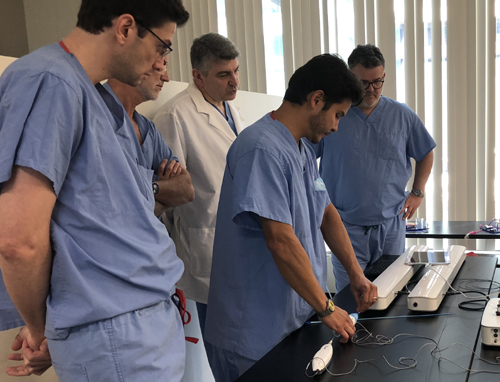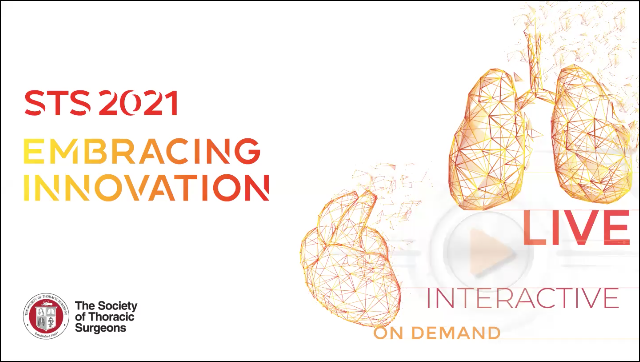Our Surgical Skills lab provides a leading-edge skills training experience for our surgery residents and medical students. The lab resides in close proximity to the clinical care areas, providing an easily accessed (24/7) and ideal location for perfecting surgical skills.
Residents are provided with protected time each Wednesday morning with emphasis on both medical knowledge as well as skills training.
Surgical attending faculty and staff with experience in surgical simulation education are available for guidance with training modules and skills development.
Technical Training
Our curriculum is designed to focus on the development of surgical and clinical skills early on in the training process, while the senior-level simulation sessions employ simulation-based replication of operative procedures (bowel anastomoses, kidney transplants, etc.). During this process, emphasis is placed on surgical skill refinement as well as development of leadership skills, professionalism, effective communication, and understanding of systems-based practice to prepare graduates for the next phase of their careers.
|
Procedural Skills |
Operations Inguinal hernia repair Stapled anastomoses Vascular anastomoses |
Laparoscopic Skills Camera navigation Transfer drills Suturing |
Robotic Skills Arm docking Robotic suturing Robotic instrument manipulation |

- The sim lab includes a dedicated Intuitive Da Vinci robot and console solely utilized for training. This simulation set-up is available to all residents 24/7.
- Stony Brook also uses the SimNow platform directly developed by Intuitive. This program provides real haptic feedback and directed scoring on actual simulated surgical procedures
Required components for board certification (include picture of dedicated FES trainer in sim lab):
- Fundamentals of Laparoscopic Surgery (FLS)—dedicated simulators that are identical to those used on the exam
- Fundamentals of Endoscopic Surgery (FES)—dedicated FES trainer located in our sim center. The sim center is an approved FES testing site, one of only a handful in New York.
- Advanced Cardiovascular Life Support (ACLS)—taught in-house
- Advanced Trauma Life Support (ATLS)—taught in-house by our trauma faculty
In 2019, a comprehensive simulation lab program in cardiac surgery for the general surgery residents was established. Our cardiac surgeons will help residents to perform cardiac surgery procedures in the simulation lab (pig lab).
The cardiac sim lab has a programmatic outlook on different dates for each of the most common cardiac procedures. Each session will be proctored by the faculty expert in the procedure.
Resident performing simulated placement of anchors in endovascular repair of complex aortic aneurysm.
Director: Jorge M. Balaguer, MD. Associate Professor Cardiothoracic |
In addition, we are working to develop a boot-camp training session for residents to learn anastomosis in pig heart with evaluations of their progress according to their practice.
The surgical skills lab has not only emerged as a training tool with enormous potential for teaching and learning, but also provides an avenue for scholarly output focused on surgical education. (eg, "Simulated Laparoscopic Sigmoidectomy Training: Responsiveness of Surgery Residents").

Resident performing simulated placement of anchors in endovascular repair of complex aortic aneurysm.

(Click image to view video)
STS 2021 Embracing Innovation - The Society of Thoracic Surgeons
Cardiac Surgery Simulation Series During General Surgery Residency Increases Resident Knowledge,
Involvement, and Technical Familiarity with Cardia Operations
Andrew P. Rabenstein, MD; Alisa Khomutova, MD; A Laurie W. Shroyer, PhD; Richard Scriven, MD; Allison McLarty, MD;
Henry Tannous, MD; Jorge Balaguer, MD
